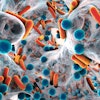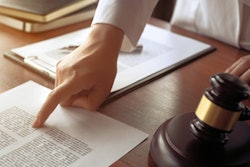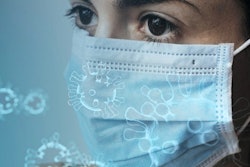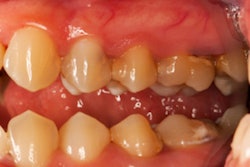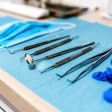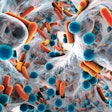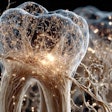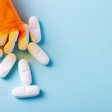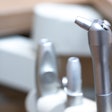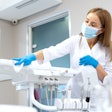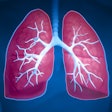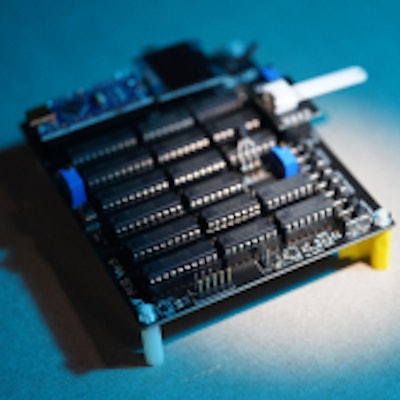
The University of Florida (UF) is highlighting a COVID-19 oral testing device developed in part by a dentist that UF said can detect coronavirus infection in as little as 30 seconds and as sensitively and accurately as a polymerase chain reaction (PCR) test.
The device was developed in part by Dr. Josephine Esquivel-Upshaw, a professor in the college of dentistry's department of restorative dental sciences. Esquivel-Upshaw said the device can be built for less than $50 and is powered by a 9-volt battery. In addition, the device is 90% accurate -- the same as a PCR test.
Here's how it works: A testing strip with coronavirus antibodies attached to it is placed on an individual's tongue to collect a saliva sample. It is then inserted into a reader, which is connected to a circuit board.
 The motherboard of a rapid COVID-19 testing device. Image courtesy of Houndstoothe Analytics.
The motherboard of a rapid COVID-19 testing device. Image courtesy of Houndstoothe Analytics.If the individual is infected, the coronavirus in the saliva sample binds with the antibodies via electrical pulses. The higher concentration of coronavirus changes how electricity is conducted in the sample. By amplifying the voltage signal, the value produced will indicate a positive or negative result. The lower the value, the higher the viral load.
The device is not yet approved by the U.S. Food and Drug Administration. UF recently entered into a licensing agreement with Houndstoothe Analytics to manufacture and sell the device to medical professionals and consumers.
The team is also studying the device's ability to detect specific proteins that could potentially diagnose other illnesses, including cancer, heart attack, and immune health.


